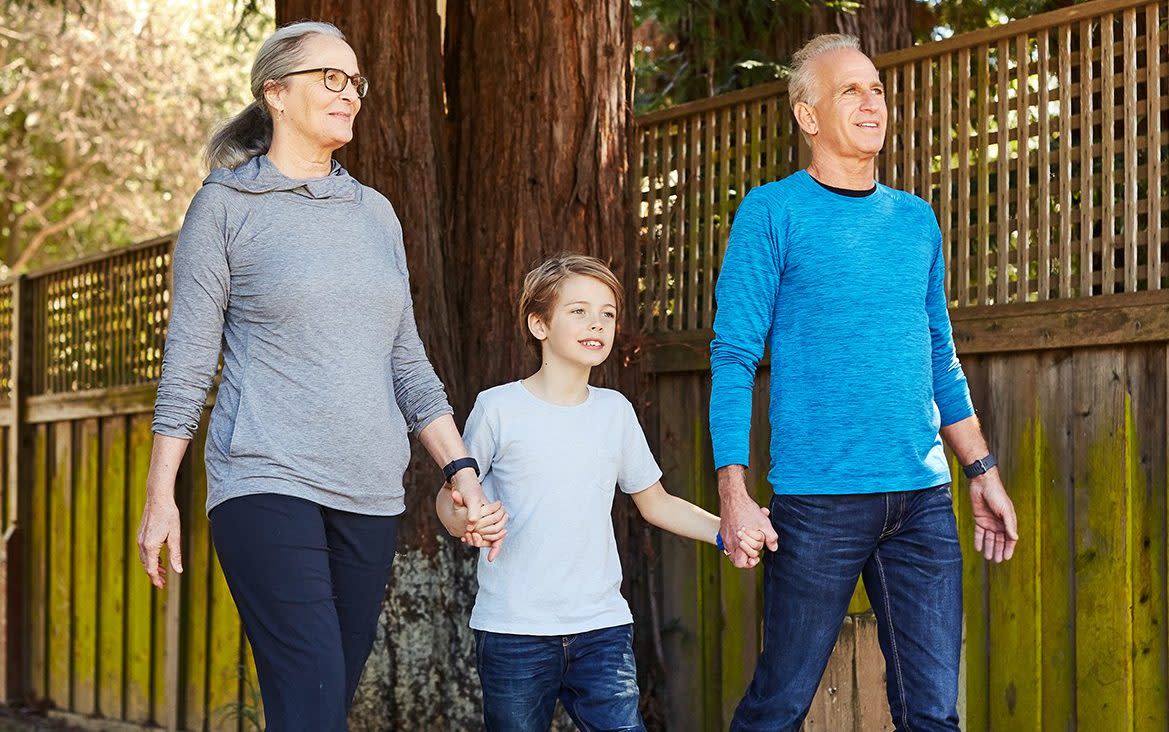Are your grandchildren bad for your health?

Most grandparents are happy to say that grandchildren enrich their lives and perhaps even help them feel younger, but could it actually have an impact on your health and how long you live?
That was what Professor Dr Lea Ellwardt and her team at the University of Cologne in Germany set out to discover with a new study which has just been unveiled.
“Our expectation would be that there’s a survival advantage for grandparents because it makes them happy and if people are happy it usually has a positive impact on their mental and physical health,” Ellwardt told the Telegraph.
Yet surprisingly, the study, which analysed the data of 27,463 adults aged over 51 and older from the USA over a 22 year period, found no major link between grandparenthood and mortality. Those with grandchildren tended to live as long as those without.
“But we checked the results in more detail for sub-populations and more systematically looked into differences, and found one interesting thing,” notes Ellwardt. “People who became grandmothers at a relatively young age (aged 65 or younger), had four or more grandchildren and were married, tended to have a higher mortality risk.
“Our interpretation of this finding is that perhaps these grandmothers just have a lot on their plate. They're normally still in working age, they look after their grandchildren, they still have a partner who needs their attention, and they might not have the socio-economic resources at hand that older grandparents may have.”
Ellwardt is quick to state that the research isn’t totally definitive, though it does back-up a study based on Norweigian data which found a similar effect in younger grandfathers as well, which wasn’t present in the American data (though this might be due to different social expectations placed on grandmothers and grandfathers in these countries).
But the research is interesting in the context of "the grandmother hypothesis". This theory attempts to explain the reason why women’s lifespans are between six and eight years longer on average than men’s. The hypothesis is that a woman’s lifespan is extended beyond fertility (it’s worth remembering that in purely evolutionary terms, there is usually no reason for any organism to continue living after it ceases to be able to pass on its genes) in order to assist with child-rearing, which would in turn allow her children to continue procreating.
But while grandparenthood might be hardwired into people (particularly women) genetically, the data is unclear as to whether it is always a positive for the health of grandparents.
Watch: ‘Gramping’ is a new vacationing trend that has emerged thanks to the pandemic
A 2016 study from America found that grandparents do live up to five years longer on average if they spend time with grandchildren, at least occasionally. And a 2014 study found that grandparents who spent one day a week looking after their grandchildren had higher scores on cognitive tests than those who didn’t.
Meanwhile, a study of grandparents across Europe in 2016 found a positive correlation between grandchild care and health even after health and socio-economic factors were taken into account, albeit only for grandmothers: no such effect was noted in grandfathers.
Other studies have found that grandparents are more successful at losing weight and quitting smoking, do more exercise, and consequently have healthier hearts than their contemporaries who don’t have grandchildren.
Just as importantly, it appears that there’s a distinct mental health benefit to becoming a grandparent.
“When you look into the literature on grandparenthood and wellbeing, the evidence suggests that being a grandparent is a positive,” Ellwardt goes on. “It gives identity and meaning to people in older age. When people are going through a phase of life where they see their physical and cognitive capacities decline more and more, becoming a grandparent can add new meaning to their lives and give them something to live for.”
However, writing for the Oxford Institute of Population Ageing, research fellow Dr Sara Zella noted that “the effect of grandparenting on health depends on the amount of time grandparents spend in this role. It seems that older people who spend a lot of time taking care of their grandchildren have an increased risk of developing physical and mental health problems.”
Analysis shows that grandparents with primary care responsibilities for a grandchild tend to have more health problems both physically and mentally, perhaps on account of the stress and physical exertion involved in doing so.
The ultimate conclusion of all this research is perhaps an obvious one: being a grandparent can be good for you – just as long as you don’t take on too much and get burned out in the process.
Watch: Prince Philip’s official cause of death revealed


